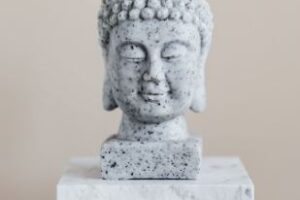
The question of politics raises its unlovely head occasionally in discussions of how we integrate Zen practice into everyday life. Many followers of Zen take the position that Buddhism is, or should be, apolitical — that when we tune into Zen, and turn on to zazen, we naturally drop out of the political fray. This seems to be what Buddha did, after all, establishing the Middle Way, and avoiding the extremes of his day and time.
The extremism of partisan politics of today certainly suggest that claiming to be independent in terms of affiliation is virtually impossible, and likely a dodge to avoid being defined by one’s political enemies as radically conservative or progressive. It may help to remember that the labels are simply that, and like all labels, overly simplify and stereotype the messy reality. Conservatives, for example, want to liberalize certain things, e.g. the ability of business to operate with less regulation; while liberals want to conserve certain things like the bill of rights, access to abortion, and the vote. The operative dimension is what the party or person wants to conserve and/or liberalize. Polls often attribute their underlying motives to a higher good, such as the theory of allowing “free markets” to prevail. Whether there is any such thing as a free market, with the ubiquitous influence of deep-pocketed lobbyists, is a fair question.
Referencing a court order to correct gerrymandered districts in NC, a politician commented that nowhere does it say that the districts have to be competitive, in the sense of striking a fair balance between the parties. Both parties are culpable in this partisan effort — in this case Republicans — but both also give lip service to the notion of free markets. For a candidate, the district is a market wherein votes are the currency. If we believe in the free market to deliver the best outcomes, how does this principle not apply to elections? This argument may have some relevance to the Electoral College as well, in which the will of the whole market can be thwarted by a subsegment.
Bringing this closer to the realm of the Zen community, recall that in the meal chant we recite “First, this for the Three Treasures; next for the Four Benefactors; finally for the Beings in the Six Realms; may all be equally nourished.”
The benefactors are parents, teachers and mentors, et cetera, and include the leadership of the country. This may be a Taoist idea, but it is based on the traditional Buddhist notion that the real reason anyone rises to a high level of power and influence in the nation is owing to merit accumulated in past lives. As such, we have the right to hold them accountable to the precepts and premises of Zen or Buddhism, which would constitute a radically different critique than what we see in the Christian- and Judaic-influenced press.
What would such challenges consist of? What would a truly compassionate Buddhist campaign look like? Most Buddhist communities are likely to skew to the liberal side of progressive causes, but conservatives can make the case that compassion must be balanced with wisdom, in order to avoid unintended consequences. R. Buckminster Fuller, one of my mentors, argued long ago that the economics will never work until the resources are distributed fairly.
This is one of the many challenges for a Zen PAC to take on. Any takers?









